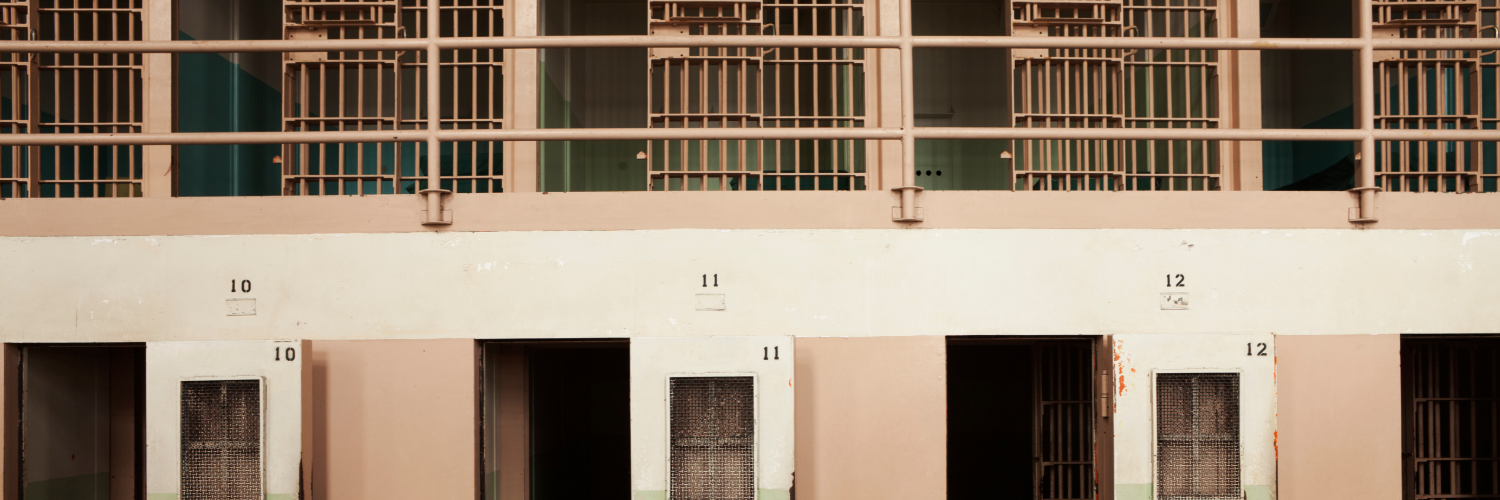
Bridging Communities and Correctional Systems: Q&A with CSG Justice Center Advisory Board Member Commissioner Nicholas Deml
The CSG Justice Center Advisory Board establishes the policy and project priorities of the organization. The board features a cross-section of leaders who shape criminal justice policy in various parts of the country.
CSG Justice Center Advisory Board member Nicholas J. Deml is the commissioner of the Vermont Department of Corrections, where he leads the agency responsible for anyone who is detained and sentenced or given community supervision in Vermont. He is an active member of the Correctional Leaders Association (CLA) and serves as chair of CLA’s Restrictive Housing Committee. Prior to joining the Department of Corrections, Commissioner Deml served as a clandestine service intelligence officer with the Central Intelligence Agency. He also served as an attorney and as an aide to U.S. Senator Dick Durbin on the U.S. Senate Committee on the Judiciary – Subcommittee on the Constitution, Civil Rights, and Human Rights. And he was a member of the national security staff in the Office of the Assistant Majority Leader of the U.S. Senate.
 Editor’s note: Answers have been edited for length and clarity.
Editor’s note: Answers have been edited for length and clarity.
What inspired you to join the CSG Justice Center Advisory Board? What unique perspective do you feel you bring to the board?
When I became commissioner of the Vermont Department of Corrections in 2021, I joined the system as an outsider with no background in corrections. This fresh perspective was incredibly valuable—it helped me objectively assess our practices, strengthen the things that worked, and eliminate those that didn’t. The CSG Justice Center does this on a national scale, actively shaping the future of justice systems through innovative and evidence-based practices. I was drawn to the CSG Justice Center Advisory Board to help further this important work, and I believe Vermont has a unique and important role to play in this space.
What was a defining moment that solidified your commitment to improving the criminal justice system?
Early in my career while I was serving as an aide to Senator Dick Durbin, I was fortunate to help prepare the first-ever congressional hearing on solitary confinement in the Senate Judiciary Committee. To set the ground for this important topic, we replicated a solitary confinement cell and displayed it in the committee room. This visceral display was coupled with witnesses who shared their experiences of being wrongfully incarcerated and subjected to years of solitary confinement. It was in this moment that I fully realized the moral obligation incumbent on all of us to humanize the justice system and committed myself to advancing that cause.
What do you see as the biggest challenges facing the criminal justice system today, and how can the CSG Justice Center help solve them?
Correctional systems are seen as completely separate from our communities, but the biggest challenges facing these systems today mirror those outside the walls. These challenges—staffing shortages, the rise in substance use disorders, lack of housing and social services—span both prisons and our neighborhoods. To truly solve these issues, we need to find ways to bridge our communities and our correctional systems. The CSG Justice Center brings these worlds together and provides expert guidance on building elegant and effective solutions to these challenges.
What have been some of the positive impacts of the CSG Justice Center’s Justice Reinvestment work in Vermont?
[Editor’s note: Between 2007 and 2008, Vermont first used the Justice Reinvestment approach to address the state’s rising prison population, reduce corrections spending, and reinvest savings in strategies to improve public safety. As a result, Vermont passed Justice Reinvestment legislation in 2008. In 2019, state leaders again used a Justice Reinvestment approach with technical assistance from the CSG Justice Center. The late Senator Dick Sears played a pivotal role in this effort, bringing stakeholders from across Vermont together to work on it. This round of Justice Reinvestment resulted in the passage of a criminal justice bill in 2020 aimed at reducing Vermont’s high recidivism rates and launching a focused effort to examine racial disparities in sentencing and in Vermont’s prisons.]
No effort in Vermont’s modern history has been as transformative and impactful for the justice system as Justice Reinvestment I and II. Through Justice Reinvestment, Vermont established presumptive parole, expanded data collection to better identify racial disparities in sentencing, and improved our field supervision processes to decrease reincarceration for minor technical violations. These initiatives led to a 30 percent decrease in the incarcerated population in Vermont since 2019—a remarkable achievement—and will continue to have lasting impacts in Vermont for years to come.
Credits: Photos by Stephan Hoerold via Canva
About the author

Governors emphasized a wide range of criminal justice and behavioral health initiatives in this year’s state-of-the-state addresses. From…
Read MoreCorrections leaders balance the complex priorities of maintaining public safety, operating secure facilities, providing needed care and services…
Read MoreThe CSG Justice Center is pleased to announce 5 new members of its advisory board. Hailing from states…
Read More State of the States: Criminal Justice and Behavioral Health Priorities in 2025
State of the States: Criminal Justice and Behavioral Health Priorities in 2025
Governors emphasized a wide range of criminal justice and behavioral health initiatives…
Read More Apply Now for Resident Analyst Program to Increase Data Analysis Capacity at Departments of Corrections
Apply Now for Resident Analyst Program to Increase Data Analysis Capacity at Departments of Corrections
Corrections leaders balance the complex priorities of maintaining public safety, operating secure…
Read More Five New CSG Justice Center Board Members Look to Strengthen Communities and Improve Public Safety
Five New CSG Justice Center Board Members Look to Strengthen Communities and Improve Public Safety
The CSG Justice Center is pleased to announce 5 new members of…
Read More Removing Barriers to Successful Reentry: Q&A with New CSG Justice Center Advisory Board Member Dr. Ronald F. Day
Removing Barriers to Successful Reentry: Q&A with New CSG Justice Center Advisory Board Member Dr. Ronald F. Day
The CSG Justice Center Advisory Board establishes the policy and project priorities…
Read More Transforming Lives with Access to Needed Mental Health Care: Q&A with New CSG Justice Center Advisory Board Member Dr. Courtney Harvey
Transforming Lives with Access to Needed Mental Health Care: Q&A with New CSG Justice Center Advisory Board Member Dr. Courtney Harvey
The CSG Justice Center Advisory Board establishes the policy and project priorities…
Read More Six States Commit to Improving Statewide Strategies to Address Youth Crime, Violence and Behavioral Health
Six States Commit to Improving Statewide Strategies to Address Youth Crime, Violence and Behavioral Health
The Council of State Governments (CSG) Justice Center has launched the Collaborating…
Read More









